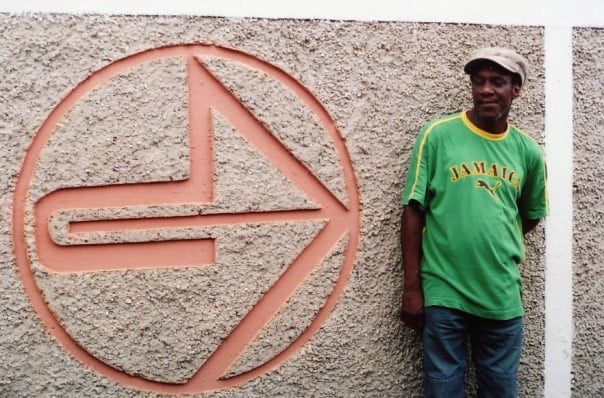Fifty years after its release, No Other Woman—the first studio recording by Reggae singer and producer Linval Thompson—has found new life as a streaming sensation. The track is a testament to the value of owning your masters—a concept Carter Van Pelt, Reggae specialist and founder of ‘Coney Island Reggae on the Boardwalk,’ is passionate about sharing.
Van Pelt explained how the streaming era has created unprecedented opportunities for artists to profit from their past works, provided they retain control of their recordings. “Any song ever recorded can become a hit overnight, triggered by social media or other forms of virality,” he told DancehallMag. “If the owner of a sound recording maintains control of their masters – or has a large enough royalty rate on something they licensed – they will benefit if the streaming ever takes off. If the master is signed away for an advance with a low royalty rate, they won’t see nearly as much of the potential long-term benefits.”
This wisdom proved true for Thompson.
No Other Woman—his debut recording, self-produced as a 7-inch single in the early 1970s—had been largely forgotten until Van Pelt rediscovered it while compiling The Early Sessions, a 2005 album of Thompson’s rare tracks. Initially released as a limited run of 1,000 CDs and vinyl copies on Thompson’s ‘Linval Thompson Sound’ label, the album performed modestly before being licensed to streaming platforms via music distributor Zojak World Wide in 2011.
For years, the streaming numbers were negligible. Then, around 2023, No Other Woman began to trend, eventually hitting millions of streams monthly. Now, the album has amassed over 20 million streams, most of this activity occurring in the last year. The majority of the streams come from No Other Woman (16.4 million), followed by the second track on the album, Another Man , which has 3.5 million streams. Thompson enjoys 80% of the royalties from this success because he never sold the master rights.
“Until No Other Woman took off, he hadn’t had what you would call a ‘hit record’ on the digital streaming platforms,” Van Pelt noted. “He had original soundsystem hits in the 70s and 80s with Don’t Cut Off Your Dreadlocks, Train To Zion, and Look How Me Sexy, but none of those original hits are big in the streaming world. No Other Woman is vastly outperforming those tracks of his that were part of the cultural history of reggae, the songs that older heads know.”
Van Pelt added that the track is even outperforming some of Thompson’s popular productions including Freddie McGregor’s Big Ship and Barrington Levy’s Poor Man Style. However, Thompson does not own those projects.
Thompson himself is thrilled by the resurgence, and he’s encouraging other artists to retain their musical rights.
“You never can tell what will happen, but I give thanks that my first ever recording is a new foundation for me going forward,” the 70-year-old told DancehallMag. “I’m seeing the benefit because of Prezident Carter. I think artists shouldn’t sign away their rights, and producers should not give their catalogs away. It’s the artists’ time now.”
Inspired by the track’s newfound success, Thompson is capitalizing on its momentum. “I’m working to get No Other Woman remixed and getting a video put together for it, to keep it turning. I also have other recordings coming out, both with me and new artists and vintage catalog. I have a new record with Irie Ites called Ganja Man, which is going good, and Bound To Fall, with JonQuan and Ticklah.”
“I will never stop making music. I love it to my heart and soul,” he added.
Van Pelt emphasized that artists risk far more than lost revenue if they don’t retain control of their masters. He warned that artists who sell their masters not only lose significant financial benefits but also they may relinquish creative and administrative control.
“It also comes down to whether an artist has enough structure/team around them and know-how to get the most out of what they control, rather than it just sitting there and being totally overlooked,” he reasoned. “While it’s an option to roll the dice and wait for something to happen in the future, it might never happen. Most independent distributors will take 20% and give the master sound recording owner 80% of the streaming revenue, but the downside is that these deals provide little to no marketing support.”
He continued, “If you have the fanbase and savvy to market your own music and make people aware of it, motivate them to stream it or purchase it, then it can work, but there are no guarantees. With a traditional label deal, there would be an advance against future sales and an eventual royalty, but that royalty rate might not be more than 20% and historically, these have been far less. If a producer or artist is going to sign away their rights, not knowing what will happen, I think it’s more important to get a higher royalty rate rather than a large advance.”

 3 weeks ago
6
3 weeks ago
6


 English (US) ·
English (US) ·